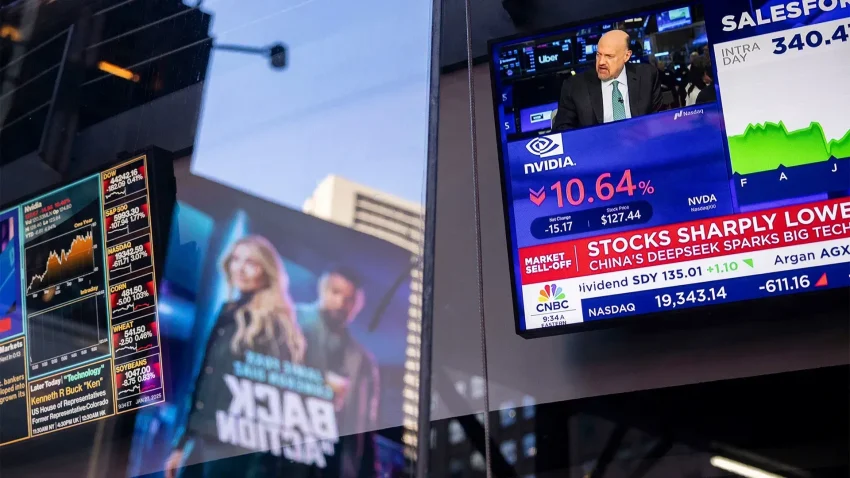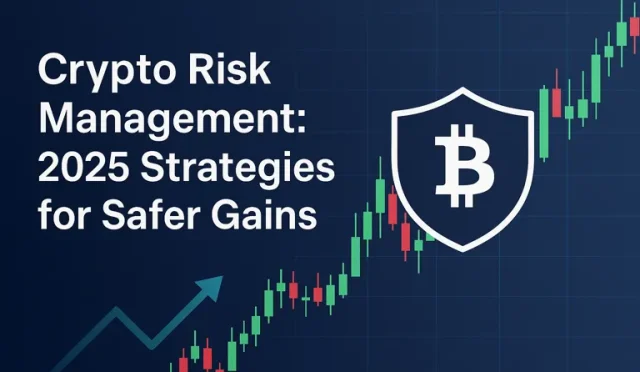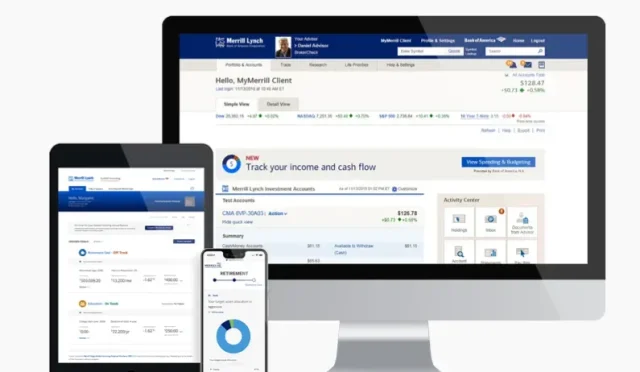The prospect of an AI stock market crash looms large over investors, raising alarm bells similar to those heard during the infamous dot-com crash. As artificial intelligence continues to command attention and investment, concerns grow that we might be on the brink of another financial bubble, reminiscent of past technology-driven market frenzies. Experts warn that, should a downturn occur, it could devastate household wealth across America, potentially wiping out significant portions of savings tied to the stock market. With nearly 20% of Americans’ wealth now linked to stocks, the implications of an AI stock market crash are daunting for everyday consumers. As we delve deeper into the possible consequences, it’s crucial to understand how these dynamics might reshape the financial landscape and stir investor concerns about the stability of their assets.
As we explore the risk of a downturn in technology-driven investments, it’s essential to consider the ramifications of a potential collapse in the AI sector. This phenomenon, which may be viewed as an impending crisis in automated trading and smart algorithms, could trigger widespread investor panic and market corrections. Historical parallels to previous economic instabilities, such as the tech stock implosions of the early 2000s, can shed light on how such a collapse might impact the greater economy. With the valuation of numerous companies heavily reliant on artificial intelligence, investor anxieties around market bubbles are heightened. A downturn in this sector could not only affect corporate profits but also threaten the overall economic stability that a significant portion of household wealth currently rests upon.
The Potential Impact of an AI Stock Market Crash
The potential repercussions of an AI stock market crash could be far-reaching, affecting the livelihoods of millions of everyday Americans. As artificial intelligence systems become more integrated into business practices, the market capitalization of tech companies linked to this innovation continues to soar. If a downturn occurred in this sector, the resulting financial losses could eclipse those seen during the dot-com crash, with potentially devastating consequences for household wealth. Given that around 20% of American households’ wealth is invested in the stock market, a significant dip could lead to severe financial strain for those already vulnerable.
Investor concerns are not unfounded; the current landscape shows a heavy reliance on AI-driven firms, with top companies like Nvidia and OpenAI at the forefront of this technological shift. The market dynamics today differ vastly from the past, as many young investors have gained easier access to trading, pushing up investments in stocks significantly from the dot-com era. This over-exposure places a larger percentage of family wealth directly at risk. Should the anticipated returns from these AI innovations fail to materialize, the potential fallout could trigger a rapid decline in consumer spending, further exacerbating the economic impact.
Lessons from the Dot-Com Era and the Role of AI
The dot-com crash serves as a cautionary tale for today’s investors who are caught up in the excitement surrounding artificial intelligence. During the late 1990s, an unprecedented bubble developed as investors disregarded traditional valuations, believing the internet would revolutionize the economy overnight. Today, with AI hype reaching fever pitch, similar patterns are emerging, causing investor concerns about how sustainable this growth really is. It raises critical questions: are we witnessing another speculative bubble, or is AI truly the next frontier that will redefine markets as we know them?
As we reflect on past market bubbles, the importance of grounded investment strategies becomes clear. Many tech companies from the 1990s failed to achieve profitability, leading to massive losses when the markets corrected themselves. For AI-focused firms to avoid a repeat of this scenario, transparency about earnings and realistic projections are essential. By studying the lessons of the dot-com period, investors can be more alert to the risks inherent in AI investment, balancing their portfolios to mitigate the impacts of any potential crash, thereby protecting their household wealth.
Consumer Spending and Economic Growth in a Crisis
The relationship between stock market performance and consumer spending cannot be understated, as illustrated by historical trends. After the dot-com crash, consumer confidence plummeted, negatively impacting spending habits across the United States. Current research suggests that for every $100 lost in stock market wealth, average consumer spending declines by approximately $3.20. If an AI stock market crash were to mirror the severity of the early 2000s, the prediction of an $890 billion decrease in spending could further hinder economic growth, pushing the nation into a recession.
This phenomenon raises significant concerns among investors, as consumer behavior is intimately tied to emotional confidence in the market. As people feel wealthier, they are likely to spend more, stimulating economic activity. Conversely, a significant market downturn could lead to a crisis of confidence, halting expenditures and thereby slowing down GDP growth. The risk is not just confined to the stockholders; the broader economy could be adversely affected, amplifying the potential pitfalls of an AI-related market crash.
Investor Sentiment and the Future of AI Investments
Investor sentiment plays a critical role in determining market trajectory, particularly in emerging fields like artificial intelligence. As enthusiasm builds around transformative technologies, the risk of overvaluation heightens, similar to past cycles that have culminated in severe market corrections. Current indicators suggest a widespread belief in the long-term potential of AI, which complicates the evaluation of these investments’ true worth. The inherent volatility of technology stocks adds an additional layer of complexity, where hype can rapidly inflate prices, leaving investors vulnerable to significant losses when reality settles in.
While the allure of high returns can foster a bullish sentiment, it is crucial for investors to adopt a cautious approach, informed by historical precedents. Incorporating diligent analysis, risk assessment, and diversification strategies can help mitigate potential fallout from an AI stock market crash. Ultimately, a balanced view on AI investments, recognizing both their groundbreaking potential and inherent risks, will position investors to navigate the future landscape more effectively.
Strategies for Hedge Against an AI Stock Market Crash
As the stock market becomes increasingly tied to developments in artificial intelligence, devising strategies to hedge against potential crashes is paramount. Investors can mitigate risks by diversifying their portfolios beyond technology sectors that are heavily reliant on AI. Introducing a mix of traditional assets such as bonds, commodities, and real estate can provide stability, especially during volatile market conditions. A well-rounded investment strategy, bolstered by substantial research into company fundamentals and market trends, is vital for safeguarding household wealth against unforeseen downturns.
Additionally, adopting a long-term perspective can prove beneficial for navigating periods of market turbulence. By focusing on companies with sustainable business models and a consistent track record of profitability, investors may uncover opportunities that perform well even in declining markets. Maintaining an emergency fund or liquidity reserve also enables investors to weather periods of poor performance effectively, allowing them to capitalize on market recoveries when they surface. Overall, a proactive approach, blending education and strategic asset allocation, can better prepare investors for any fallout from a potential AI stock market crash.
Understanding Market Capitalization and Its Effects
Market capitalization serves as a critical measure of a company’s total value and can significantly influence investor perceptions during times of economic uncertainty. As the landscape of the S&P 500 evolves, so too does the weight of companies invested in artificial intelligence, which now comprise a larger portion of the index’s total value. With the top 20 firms accounting for more than half of the market capitalization, any failure within this sector can reverberate throughout the entire economy. Such concentration underscores the heightened risk posed by reliance on a few tech giants, making market dynamics precarious.
Understanding the implications of these market variables is essential for navigating investment decisions in uncertain times. As larger firms prioritize AI development, market volatility becomes more pronounced, shaping public perception and investor confidence. In an environment where significant portions of household wealth are tied to the stock market, an acute awareness of market capitalization shifts can guide strategic financial decisions, hopefully mitigating losses in case of a downturn.
The Risks of Overvaluation in AI Stocks
Overvaluation poses a significant risk in today’s investment climate, particularly concerning AI stocks. As excitement over the potential of artificial intelligence grows, companies poised as leaders in the space may see inflated stock prices that do not accurately reflect their intrinsic value. This disconnect can lead to rapid sell-offs, as investors scramble to reassess their positions when reality sets in. The specter of a formidable correction looms on the horizon, echoing past financial bubbles where investor exuberance blinded them to the fundamental weaknesses in overhyped assets.
Analyzing the fundamentals behind AI companies is crucial to avoid pitfalls associated with overvaluation. Metrics such as earnings, revenue growth, and profit margins should take precedence over speculative growth narratives. Moreover, fostering a critical eye towards innovation claims can protect investors from falling prey to notions of tech utopia that disregard economic realities. A balanced approach, weighing both potential rewards and risks, will help sustain investment strategies amid the highs and lows of AI-stock fluctuations.
The Role of Research in Investment Strategy
Thorough research is vital for investors seeking to navigate the complexities surrounding AI and its corresponding market dynamics. With the rapid pace of technological advancements, ensuring informed investment decisions relies on staying updated about industry trends, emerging companies, and market behavior. Evaluating a company’s AI projects, partnerships, and research initiatives can provide insights into its long-term viability in the marketplace. Moreover, understanding regulatory changes impacting the technology can further inform investment decisions, yielding advantageous outcomes.
Furthermore, leveraging expert analysis and market reports can enhance investor knowledge, contributing to a robust strategy to counteract the risks associated with an AI stock market crash. By fostering a culture of continuous learning and adaptation, investors can empower themselves to make informed choices with confidence, positioning their portfolios for resilience amidst potential downturns. Ultimately, a diligent approach through research is foundational in navigating both the challenges and opportunities that an AI-driven market presents.
Frequently Asked Questions
What would an AI stock market crash mean for household wealth in America?
An AI stock market crash could significantly impact household wealth in America, potentially erasing up to 8% of it, similar to the dot-com crash. With around 20% of Americans’ total wealth, approximately $42 trillion, currently invested in stocks, a downturn could lead to drastic reductions in consumer spending, impacting the overall economy.
How does the potential AI stock market crash compare to the dot-com crash?
The potential AI stock market crash is often compared to the dot-com crash due to similarities in investor enthusiasm and market capitalization. During the dot-com era, overvaluation of tech stocks led to a significant market correction, a pattern that some analysts fear may be repeating with the current hype surrounding artificial intelligence.
What are the main investor concerns related to the AI stock market crash?
Investor concerns about an AI stock market crash stem from the high valuations of tech companies linked to AI and the potential for a market bubble. With leading firms making up 52% of the S&P 500’s total value, a failure in AI technology to deliver returns could lead to widespread financial repercussions for both investors and American households.
Could a crash related to artificial intelligence affect consumer spending?
Yes, a crash related to artificial intelligence could greatly affect consumer spending. Historical data suggests that for every $100 decline in stock market wealth, consumer spending decreases by approximately $3.20. Therefore, a significant downturn in the AI sector could lead to an estimated $890 billion drop in consumption, impacting economic growth.
What historical events teach us about the risks of an AI stock market bubble?
Historical events like the dot-com crash illustrate the risks of stock market bubbles fueled by hype around emerging technologies such as artificial intelligence. These events show that investor enthusiasm can lead to inflated valuations followed by substantial market corrections, often resulting in significant financial losses across the economy.
How has the landscape of the stock market changed since the dot-com era in relation to AI?
Since the dot-com era, the stock market landscape has changed significantly, with a larger portion of household wealth now tied to stocks, particularly in technology. Today’s largest companies are heavily invested in artificial intelligence, which heightens the risk of an AI stock market crash similar to past corrections.
What steps can investors take to mitigate risks associated with an AI stock market crash?
Investors can mitigate risks associated with an AI stock market crash by diversifying their portfolios, investing in a mix of asset classes, and staying informed about market trends. Understanding the historical context of bubbles and assessing the realism of AI technology’s potential can also guide more prudent investment decisions.
What role does investor sentiment play in the risk of an AI stock market crash?
Investor sentiment plays a crucial role in the risk of an AI stock market crash. High enthusiasm can inflate stock prices well beyond their actual value, creating a bubble. If sentiment shifts dramatically—due to poor performance in AI investments—the subsequent correction can lead to significant market downturns.
What impact could the AI stock market crash have on the broader economy?
An AI stock market crash could lead to decreased consumer spending and reduced economic growth. If household wealth declines, as seen in historical crashes, there could be a ripple effect on economic performance, potentially decreasing GDP by a significant margin, underscoring the interconnectedness of stock markets and the economy.
Why is the current AI boom seen as potentially risky for investors?
The current AI boom is seen as potentially risky for investors due to its similarities to past bubbles, particularly the dot-com era. Heightened valuations, heavy investment concentration in leading tech firms, and unproven profitability raise concerns that a sudden market correction could lead to widespread financial losses.
| Key Points |
|---|
| AI stock market crash could erase 8% of American households’ wealth. |
| Historical context of stock market bubbles, especially the dot-com crash. |
| Increased market capitalization of tech firms, particularly influenced by AI. |
| 20% of Americans’ total wealth is now invested in stocks, compared to the dot-com era. |
| Predicted consumer spending decline of $890 billion following an AI crash. |
| Concentration of wealth in top AI firms could exacerbate the impact of a crash. |
Summary
The AI stock market crash could have devastating effects, potentially wiping out 8% of American households’ wealth. As seen in history, bubbles tend to burst following heightened investor enthusiasm, and the current surge in AI investing is no different. With a significant portion of household wealth tied to the stock market and the economic indicators showing a predicted drop in consumer spending, the ramifications of a decline could be far-reaching. Given that the largest companies are now heavily invested in AI, a failure in this sector could compound the damage, affecting millions of Americans and the overall economy.








